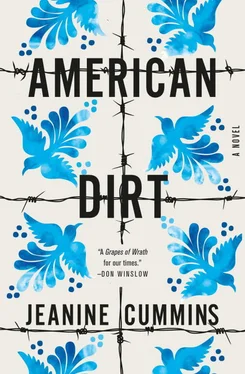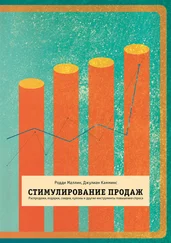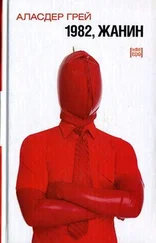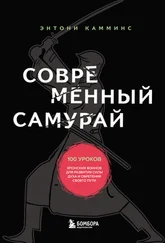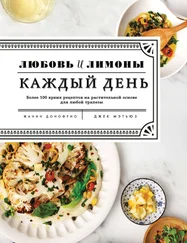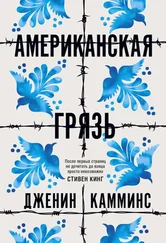Жанин Камминс - American Dirt
Здесь есть возможность читать онлайн «Жанин Камминс - American Dirt» весь текст электронной книги совершенно бесплатно (целиком полную версию без сокращений). В некоторых случаях можно слушать аудио, скачать через торрент в формате fb2 и присутствует краткое содержание. Город: London, Год выпуска: 2020, ISBN: 2020, Издательство: Tinder Press, Жанр: Современная проза, на английском языке. Описание произведения, (предисловие) а так же отзывы посетителей доступны на портале библиотеки ЛибКат.
- Название:American Dirt
- Автор:
- Издательство:Tinder Press
- Жанр:
- Год:2020
- Город:London
- ISBN:978-1-4722-6138-0
- Рейтинг книги:5 / 5. Голосов: 1
-
Избранное:Добавить в избранное
- Отзывы:
-
Ваша оценка:
- 100
- 1
- 2
- 3
- 4
- 5
American Dirt: краткое содержание, описание и аннотация
Предлагаем к чтению аннотацию, описание, краткое содержание или предисловие (зависит от того, что написал сам автор книги «American Dirt»). Если вы не нашли необходимую информацию о книге — напишите в комментариях, мы постараемся отыскать её.
FEAR KEEPS THEM RUNNING.
HOPE KEEPS THEM ALIVE.
Vivid, visceral, utterly compelling, AMERICAN DIRT is the first novel to explore the experience of attempting to illegally cross the US-Mexico border. cite empty-line
9
empty-line
11 empty-line
14
American Dirt — читать онлайн бесплатно полную книгу (весь текст) целиком
Ниже представлен текст книги, разбитый по страницам. Система сохранения места последней прочитанной страницы, позволяет с удобством читать онлайн бесплатно книгу «American Dirt», без необходимости каждый раз заново искать на чём Вы остановились. Поставьте закладку, и сможете в любой момент перейти на страницу, на которой закончили чтение.
Интервал:
Закладка:
‘Please,’ Mami says, dropping her voice low and leaning in. ‘Please, we are desperate. We have to get out of the city. This is the only way, please.’
‘Señora, I’m sorry. I wish I could help you. You’ll have to visit the Oficina Central del Registro Civil and request a copy of the birth certificate or you won’t be able to fly. There’s nothing I can do. Even if I could give you a ticket, you wouldn’t make it past security.’
Mami snatches the money and jams it into the back pocket of her jeans along with her ID. Her face is still changing colors, and now it looks whitened, washed-out.
‘I’m sorry,’ the woman says again, but Mami has already turned to go. Luca follows and he doesn’t ask where they’re going, and soon they’re on the metro. When they emerge at Isabel la Católica station, Luca’s conflicted feelings only intensify, because being in Mexico City is a bona fide adventure. Everything is different here from Acapulco, and Luca struggles to take in all the color: the whipping flags, the fruit vendors, the baroque colonial buildings sitting shoulder to shoulder with their blocky modern neighbors. Music spills from wrought iron balconies, vendors hawk rows of luminous refrescos, and everywhere there is art, art, art. Murals, paintings, sculptures, graffiti. On one street corner, a colorful statue of tall Jesus – that’s how Luca thinks of it because it’s small for a statue but very tall for an adult human – stands with one fold of his bright green robe slung jauntily over his arm. Beneath this genuine onslaught of sensory stimulation, Luca manages to temporarily bury his guilt. His mouth hangs slightly open as he walks beside Mami, gulping in the scenery.
At a stall, Mami buys tamales and a bag of cut cucumbers. It’s almost two o’clock, and Luca’s hungry, so they sit beneath an umbrella to eat. He considers how strange it is that certain things haven’t changed. The salted cucumbers taste just as they did before everyone died. His knuckles haven’t changed. His fingernails. The width of Mami’s shoulders. He chews without speaking. When their lunch is finished, Mami takes him to a square, concrete building with a statue of naked dancers in front, where the man behind the counter tells them that in order to get a copy of Luca’s birth certificate, they have to go to the registration office in the state where he was born.
‘Was he born in Mexico City?’
‘No.’
‘In the state of Mexico?’
‘No, Guerrero.’
‘Can’t help you,’ he says. There’s a sandwich sitting on his side of the counter, and he seems eager to get back to it.
On the sidewalk outside, Luca and Mami take a little break from moving so she can think. They squat down together in the shade of that square building. They lean against the wall, and after a few moments, Mami stands up. ‘Okay,’ she says, and her face has returned to its normal hue, and her hands are firm at her sides. She holds them in fists. ‘Okay.’ She says it again.
Next they walk a few blocks to a huge brick building with once-white stonework that’s been discolored by time and weather and pollution. It has a gargantuan, arched wooden door, studded with massive golden buttons. Luca stares up and feels almost frightened by the scale of it, ten times taller than he is. But Mami is holding his hand, and together they pass beneath the bright purple flowers of the jacaranda trees. They walk through a smaller door cut into the gigantic door and enter the cool hush of the interior.
It’s the Biblioteca Miguel Lerdo de Tejada, and even though this library specializes in economics, it’s so absurdly beautiful that it was Lydia’s favorite place to study when she was a literature and English student in college. It’s also the place where she and Sebastián first met, mistaking each other for economics majors. As their romance evolved, they developed a mutual joke that they’d both been in the market for a more economically reliable mate than the one they accidentally ended up with.
With the exception of the new computers on the tables along the back wall, the library’s sala principal looks exactly as Lydia remembers it. The ceilings are cathedral high, the cavernous space is saturated with natural light from above, and the walls are completely wrapped by the color-drenched murals of Vlady. Sebastián had once warned Lydia that she’d fail her exams if she persisted in doing her studying here; she squandered most of her time staring at those walls. She’s long dreamed of bringing Luca to see this astonishing place, but she never imagined it would happen like this. She always thought she’d tell him the stories, but now that they’re here, with the brutal weight of their departure from real life, she finds herself unable to call forth the memories onto her lips: Sebastián sneaking her contraband snacks while she studied for her finals. Sebastián once making her laugh so hard the librarian asked them to leave. Sebastián slumped in that study carrel right over there, struggling through El laberinto de la soledad only because he knew it was her father’s favorite, and he wanted to know some of the same things her father knew, to get to know him.
How monumental Lydia’s grief had been when her father died! It terrifies her now, to think of it, how deeply formative that single loss was in her earlier life. Now there are sixteen more. When she thinks of this, she feels as tatty as a scrap of lace, defined not so much by what she’s made of, but more by the shapes of what’s missing. She can’t even imagine how this loss will shape the person Luca becomes. They need to do a funeral ceremony as soon as they’re safe. Luca will need a ritual, a method of fashioning his grief into a thing he can exert some small control over. The sweep of it bows over her, but she returns to her mantra, don’t think, don’t think, don’t think. She watches her son assess the magnitude of this place, the way his head tips back and his eyes swoop over every surface, the way he tries to chase the accidental smile from his face.
‘It’s okay, mijo, go look,’ she says. But Luca clings only more tightly to her hand. ‘Okay, then let’s sit.’ She steers him to an empty computer table and they sit.
When the idea first occurred to her as she squatted in the shade of the Oficina Central del Registro Civil, it occurred as camouflage: they could disguise themselves as migrants. But now that she’s sitting in this quiet library with her son and their stuffed backpacks, like a thunderclap, Lydia understands that it’s not a disguise at all. She and Luca are actual migrants. That is what they are. And that simple fact, among all the other severe new realities of her life, knocks the breath clean out of her lungs. All her life she’s pitied those poor people. She’s donated money. She’s wondered with the sort of detached fascination of the comfortable elite how dire the conditions of their lives must be wherever they come from, that this is the better option. That these people would leave their homes, their cultures, their families, even their languages, and venture into tremendous peril, risking their very lives, all for the chance to get to the dream of some faraway country that doesn’t even want them.
Lydia sits back in her chair and looks at her boy, who’s staring at a reclining fuchsia figure hovering on the wall above his head. Migrante . She can’t make the word fit him. But that’s what they are now. This is how it happens. They’re not the first to go – Acapulco is emptying of its people. How many of her neighbors have fled in the last year? How many have disappeared? After all those years of watching it happen elsewhere, of indulging their remote pity, of shaking their heads as the stream of migrants flowed past them at a distance, from south to north. Acapulco has joined the procession, she realizes. No one can stay in a brutal, bloodstained place.
Читать дальшеИнтервал:
Закладка:
Похожие книги на «American Dirt»
Представляем Вашему вниманию похожие книги на «American Dirt» списком для выбора. Мы отобрали схожую по названию и смыслу литературу в надежде предоставить читателям больше вариантов отыскать новые, интересные, ещё непрочитанные произведения.
Обсуждение, отзывы о книге «American Dirt» и просто собственные мнения читателей. Оставьте ваши комментарии, напишите, что Вы думаете о произведении, его смысле или главных героях. Укажите что конкретно понравилось, а что нет, и почему Вы так считаете.
